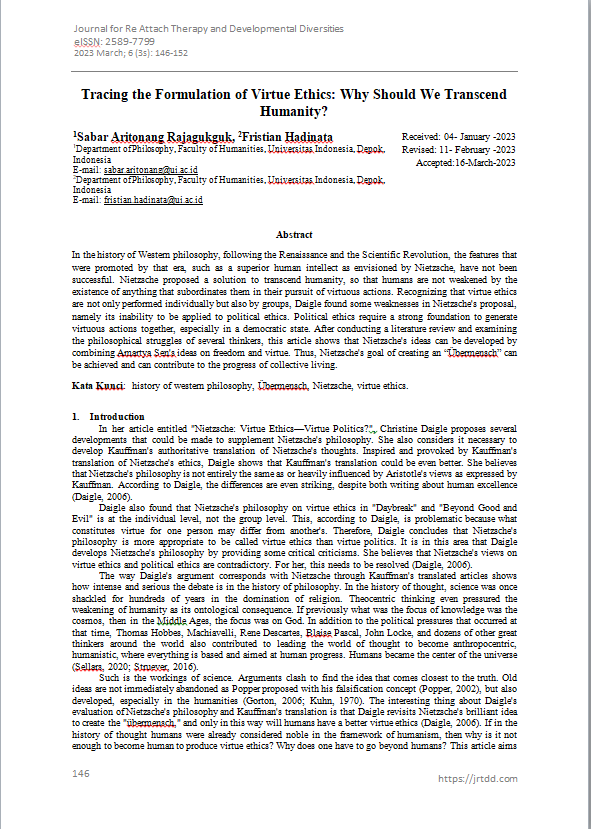Tracing the Formulation of Virtue Ethics: Why Should We Transcend Humanity?
Main Article Content
Abstract
In the history of Western philosophy, following the Renaissance and the Scientific Revolution, the features that were promoted by that era, such as a superior human intellect as envisioned by Nietzsche, have not been successful. Nietzsche proposed a solution to transcend humanity, so that humans are not weakened by the existence of anything that subordinates them in their pursuit of virtuous actions. Recognizing that virtue ethics are not only performed individually but also by groups, Daigle found some weaknesses in Nietzsche's proposal, namely its inability to be applied to political ethics. Political ethics require a strong foundation to generate virtuous actions together, especially in a democratic state. After conducting a literature review and examining the philosophical struggles of several thinkers, this article shows that Nietzsche's ideas can be developed by combining Amartya Sen's ideas on freedom and virtue. Thus, Nietzsche's goal of creating an “Übermensch” can be achieved and can contribute to the progress of collective living.

